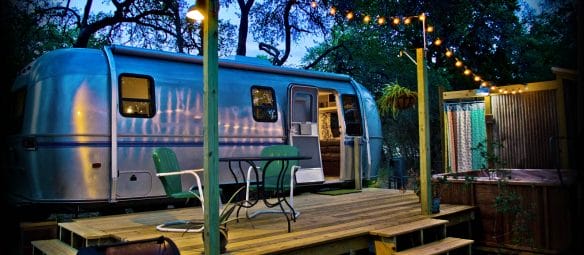
Earlier this week, a judge in New York City ruled that renting out extra space in your apartment to travelers is illegal. Since Airbnb is a platform that facilitates these short-term rentals and New York City is its largest market, this is seen as bad news for the company.
In the online commentary around the ruling, many people agreed with the court. The prevalent sentiment was that the rentals are not only illegal, but that they are unethical because renting out an apartment on Airbnb imposes an unfair cost on your neighbors. The top voted comment on Hacker News summarizes this position well:
I’ve had this argument with several people. Their position is that “it’s my house/apartment, I should be able to do what I want with it” (even when renting they use this argument).
My argument is that this is not and has never been true. You can’t, for example, run a tannery in your apartment.
What’s more, as a resident (and especially if I were an owner) I wouldn’t want my building being a de facto hotel. An endless stream of people coming and going, having building keys and so on.
Should these bans on short term sublets like the one in New York City exist in the first place though? Like taxi medallions, these laws are at best an outdated way of protecting consumers. Twenty years ago, it probably would be genuinely risky to stay in some strangers home or get in their car. Today, it’s not.
At worst though, these laws are a blatant protection racket to insulate the hotel industry from competition. Are laws that make services like Airbnb or Uber illegal really the best way to “protect” consumers? The first time you use Uber or Sidecar instead of a taxi, you realized just how antiquated a regulated taxi system is. Similarly, the first time you stay at an Airbnb instead of a hotel when you travel, it’s hard to ever imagine staying at a hotel again. A commentator shares his experience renting houses on a similar service, VRBO:
My family has used VRBO (“vacation rental by owner”) to rent apartments in Paris, Amsterdam, and Budapest over the last three summers. We loved the experience, and would never even consider going to a hotel in the future, for all of the reasons you can imagine — we save money, cook our own meals, and feel at “home” in a foreign city. It’s a marvelous feeling.
Whether Airbnb rentals impose negative externalities on neighbors is an interesting question. There is no evidence that living next to someone renting their apartment out on Airbnb is worse than living next to someone that plays loud music all the time. There are only opinions about which is worse, no actual evidence. And while this question of externalities is interesting, is it the right question? The better question is whether services like AirBnB and VRBO good for consumers.
The notion of property and trust is evolving due to technology. As little as a decade ago, if you owned something, it would sit around unused most of the time. Now, we can turn those unused assets into money. We can rent out our cars, homes, and skills to make money. It’s a much more efficient version of the world.
In many ways, a collaborative consumption economy is a much more optimistic version of the world too. It requires trust between strangers. Trust to be a safe driver, trust to be a good neighbor, trust to be a good guest. So far, as evidenced by the growth of companies by Airbnb and Uber, that trust is working out well.
If local governments fight Airbnb and VRBO, the primary winner will be people that have used lobbying to protect their industry from competition. Consumers will lose.
This post was written by Rohin Dhar. Follow him on Twitter or Google Plus. To get occasional notifications when we write blog posts, sign up for our email list.



